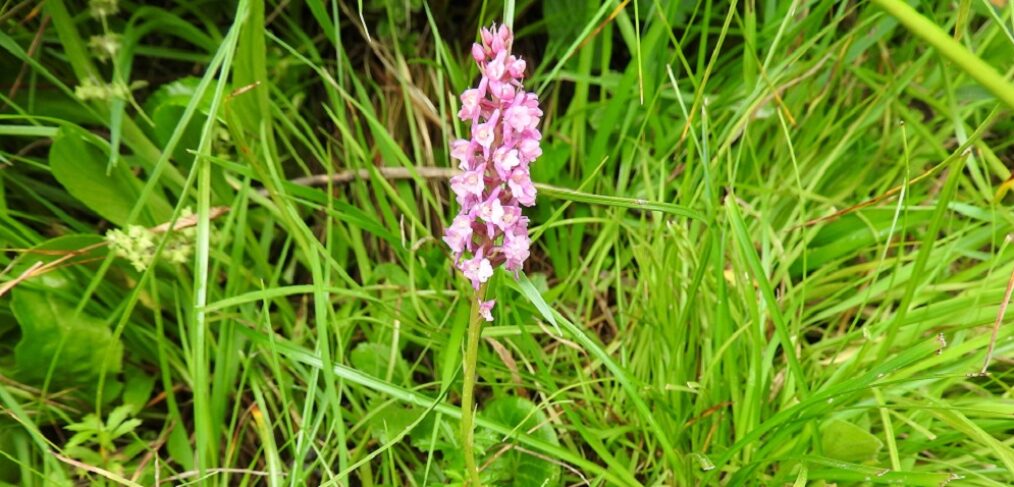
Species of the week # 127 – Gymnadenia odoratissima
It smells of vanilla and only lives on extremely calcareous substrates – that is a clear description of the Gymnadenia odoratissima, called Wohlriechender Händelwurz in German, an orchid that was still common in Rhineland-Palatinate a few years ago. The last known growing site was near the French/Saarland border. Today, the species seems to have disappeared there as well.
|
Distribution status in Rhineland-Palatinate
|
extinct |
|
Remaining occurance
|
Bavaria, Alps, Sweden, Baltic States |
|
Last sighting in Rhineland-Palatinate
|
2005 Western Palatinate |
|
Habitat
Threat
|
Alternating moist calcareous nutrient-poor meadows
Drainage, fertilisation, nitrogen input through the air |
The Gymnadenia odoratissima is a perennial herbaceous plant that grows to a height of between 15 and 30 centimetres. It forms two palmately divided tubers, the petals are white to purple.
The flowering period lasts from June to August. The plant thrives in calcareous, even lime-rich, but only slightly humus-rich soils that should be moist at times and also occurs in bogs. Confusion and hybrid plants can occur with its sister species, the Großer Händelwurz. The latter, however, also tolerates more acidic soils and occasionally even occurs on newly filled embankments at the roadside.
With its vanilla-like scent and sweet nectar, the Gymnadenia odoratissima attracts many insects. It has adhesive discs that prevent the insect from simply flying on. When trying to take off, the insect picks up pollen and passes it on to the next flowers. Little is known so far about which species exactly are responsible for pollination. Thick-headed fly, bug and beetle seem to be involved. In Baden-Württemberg, the ram, a butterfly, is probably the main pollinator. It picks up the pollen packet at the base of its head and proboscis and carries it on like this.
In 1846, the Gymnadenia odoratissima was common in the Alps and the Palatinate. In 1985, twenty sites were still mapped in Rhineland-Palatinate. Especially outside the Alps, the populations are in sharp decline. In the lowlands, the Gymnadenia odoratissima is severely endangered by drainage and fertilisation, in alpine locations by too intensive grazing.
Political necessity:
– Reduce nutrient inputs to water and air.
– Better protection of lean/calcareous sites through protective strips and rewetting.
– Promotion of extensive grazing
Click here for more exciting species of the week
Image: By Joachim Lutz – Own work, CC BY-SA 4.0, https://commons.wikimedia.org/w/index.php?curid=50947704
